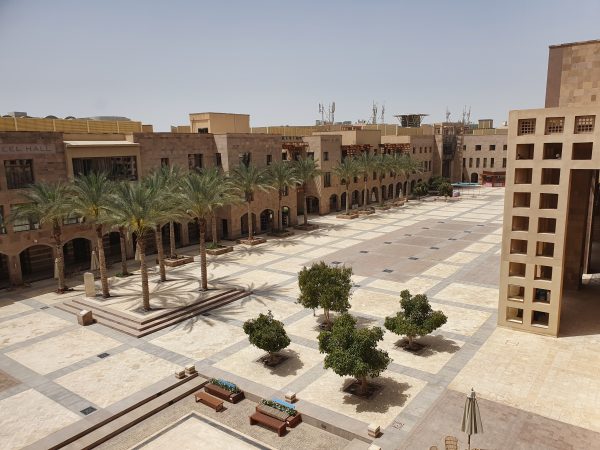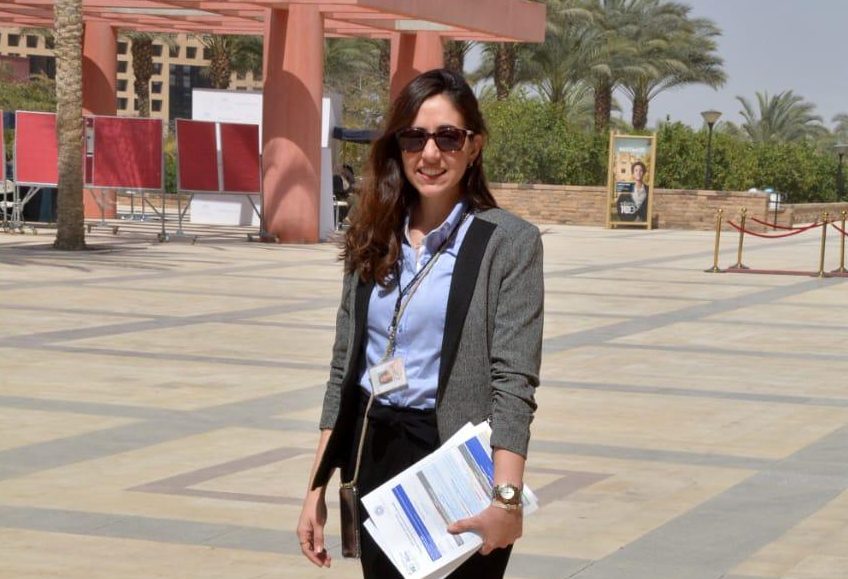When Imagining AUC’s Future, Think Big!
By: Samuel Cooper
Assistant Professor, Department of English and Comparative Literature
Photo Courtesy of Samuel Cooper
I moved to Cairo back in August to take up my position here at AUC as Assistant Professor in ECLT. I had been thrilled to get the job; as I told friends at the time, I would have turned down Harvard or Yale in a heartbeat to come to AUC.
Harvard and Yale may have bigger libraries and endowments, but AUC is in Egypt, and given my interests–the ancient Greco-Roman world, which is really the ancient Greco-Roman-Egyptian world; the way that fiction engages with science, technology, and nature, for example in science fiction; the Arabic language; walking around magnificent ruins; eating fresh produce grown on small family farms; sunbathing in November; snorkeling amid beautifully biodiverse coral reefs (see my Instagram) –Egypt seemed like the ideal place to be.
Let us agree that last year, the Plague Year, was not the best time to be a human in any situation. It was not the best year to move to Egypt, or to move to the USA, or to move to the Moon; it was not the best year to be a student at any university, or to teach at any university, or to try to run any university.
The general stress of the Plague Year surely accounts for some of the friction I’ve observed in the faculty senate meetings I’ve attended as ECLT’s senator. But that can’t be the only problem. Many senate meetings have included discussion by faculty members of possible or actual legal action against the university. People speak in heated tones that betray deep-seated frustration. Exasperation frequently threatens the veneer of professional cordiality that everyone struggles to maintain.
Why is this the case? I’ve heard many theories: from faculty, that the administrators are number crunchers who don’t really care about them or what they do; from administrators, that faculty just complain about everything all the time and don’t seem to care that numbers really do matter; from students, that faculty and administrators both are not actually human beings at all but rather zombies or androids masquerading as human.
My own conclusion, however, is that the root of the problem lies in the “scarcity mindset” that everyone in the institution seems to share. All of the substantive disagreements between the faculty, staff, students, administration, and Board of Trustees, are ultimately financial disagreements, disagreements about how resources should be distributed. Such disagreements are a normal and healthy part of any institution.
The problem at AUC, I think, is that while most of us share a dream of AUC as a far greater institution than it is now (which is still great!)–the Harvard, let’s say, of a globalized world in which the Middle East and North Africa have become the flourishing centers of exchange they were long before being temporarily transformed into impoverished colonial peripheries–we are typically too preoccupied with the worries and actual scarcities of everyday life to think about how to make that dream a reality. So we languish in the scarcity mindset, squabbling over nickels and dimes.
Friction in the faculty senate aside, my own experience at AUC and in Egypt gives me every reason to be hugely optimistic. My students have been brilliantly creative and fiercely intelligent. Here are just two examples: Nour Osman’s pitch for a Netflix series about Cleopatra set in modern Egypt, and Yousef Koura’s essay about attitudes towards animals in ancient Greece, Rome, and Egypt. I have absolutely loved living in Egypt: Cairo is wonderfully diverse, and Dahab is even more lovely than I had heard. This summer I’m looking forward to scuba diving amid the ruins of Ptolemaic Alexandria, and in the Red Sea’s magnificent coral reefs. Inspired by the documentary My Octopus Teacher, I even got a tattoo of an octopus, as (among other things) a way of promoting my course ECLT 3030: Literature and Cinema: Ecological Vision.
Some of the world’s best tattoo artists are Egyptians who live in Cairo. Who wouldn’t want to come work here, teach here, or study here? And who wouldn’t want to invest in our incredible students, whose skills and experiences make them uniquely qualified networkers and uniquely important voices in our globalized world?




